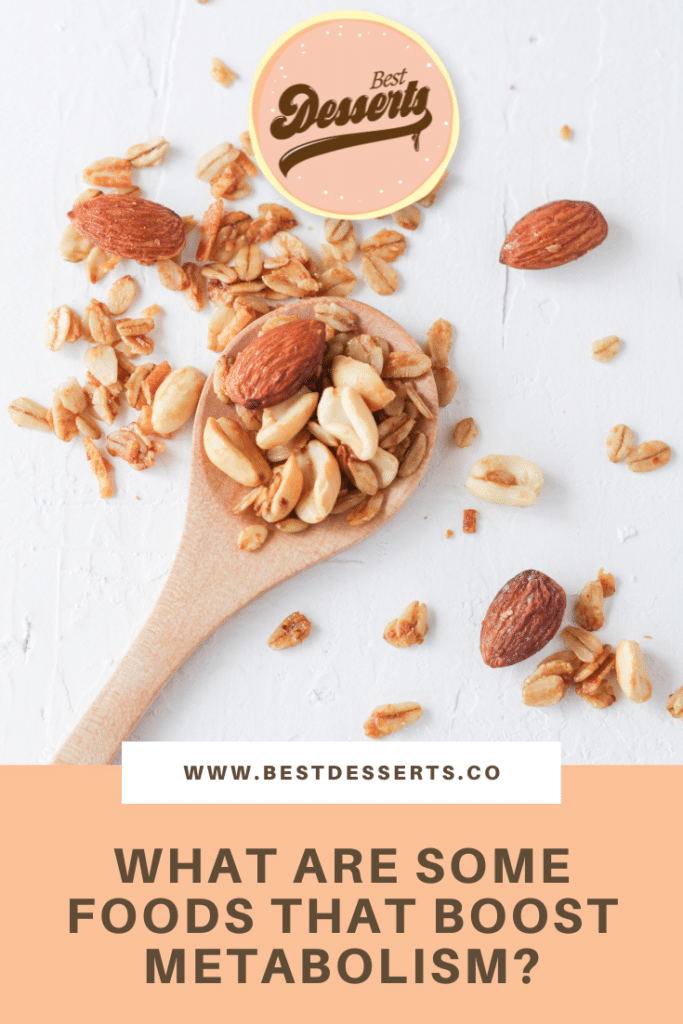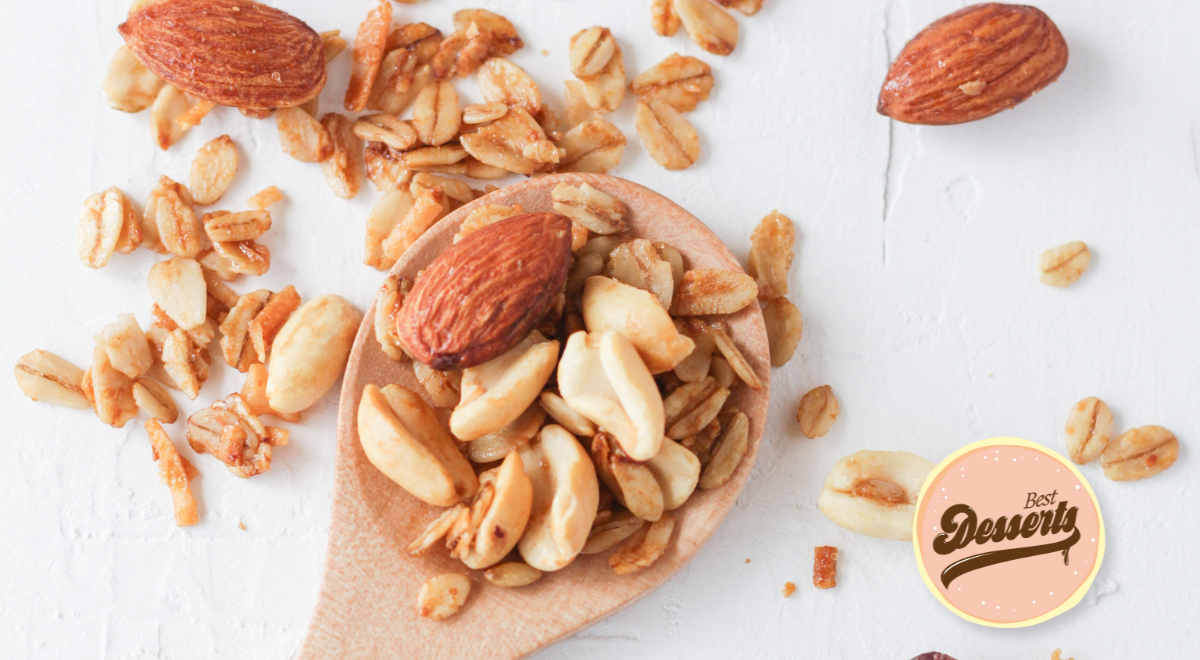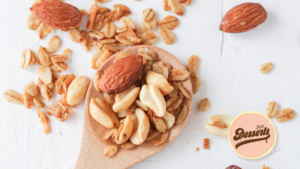Metabolism is the process by which your body converts food into energy. It plays a crucial role in maintaining a healthy weight and can be influenced by several factors, including genetics, age, and lifestyle. One way to boost metabolism is by incorporating certain foods into your diet.
Some foods that may boost metabolism include protein-rich options such as lean meats, nuts, seeds, and tofu, fibre-rich options like whole grains, fruits, and vegetables, and spicy foods like chilli peppers, mustard, and ginger. In addition, green tea, coffee, and water also have metabolism-boosting properties.
By incorporating these metabolism-boosting foods into your diet, you may be able to support a healthy metabolism and maintain a healthy weight.
What is metabolism?
Metabolism is the process by which your body converts food into energy. This energy is then used to power your body’s functions, including growth, repair, and movement. There are two main types of metabolism: catabolism, which breaks down molecules to release energy, and anabolism, which uses energy to build molecules.
Your metabolic rate, or the speed at which your body converts food into energy, can vary depending on several factors. Genetics plays a role in metabolism, as some people may have a naturally faster or slower metabolic rate. Age can also affect metabolism, as metabolism tends to slow down.
In addition, lifestyle factors such as diet and exercise can impact metabolism. For example, muscle mass is more metabolically active than fat tissue, so people with more muscle mass may have a higher metabolic rate. Similarly, regular exercise can help boost metabolism by increasing muscle mass and burning calories.
Several factors can affect metabolism, including:
- Hormones: Hormones like thyroid hormones and insulin play a role in regulating metabolism. For example, an underactive thyroid gland (hypothyroidism) can lead to a slower metabolism.
- Body size: Larger bodies generally have a higher metabolic rate because they require more energy to maintain their size.
- Gender: Men tend to have a higher metabolism than women due to factors such as muscle mass and hormone levels.
- Diet: The types of foods you eat can affect your metabolism. For example, protein-rich foods may boost metabolism because they require more digestion energy.
- Water intake: Staying hydrated is essential for maintaining a healthy metabolism. Dehydration can lead to a slower metabolism.
In conclusion, metabolism is how your body converts food into energy. It is influenced by genetics, age, and lifestyle and can be affected by hormones, body size, gender, diet, and water intake. Understanding metabolism can help you make informed choices about your diet and lifestyle to support a healthy metabolism.
Try this: Chocolate Mousse with Cherry Ripe Truffles
Foods that boost metabolism
Several foods may help boost metabolism and support a healthy weight. Here are some examples of metabolism-boosting foods to consider incorporating into your diet:
- Protein-rich foods: Foods high in protein may boost metabolism because they require more energy to digest. Some protein-rich foods include lean meats, such as chicken, turkey, and fish; nuts and seeds; and plant-based protein sources, like tofu and beans.
- Fibre-rich foods: Foods high in fibre may also help boost metabolism because they take longer to digest, which means they can help keep you feeling full and satisfied for longer. Good sources of fibre include whole grains, such as oats and quinoa, as well as fruits and vegetables.
- Spicy foods: Some studies have suggested spicy foods may help boost metabolism. Chili peppers, in particular, contain a compound called capsaicin that may have metabolism-boosting effects. Mustard and ginger are also believed to have metabolism-boosting properties.
- Green tea: Green tea is a good source of catechins, an antioxidant that may help boost metabolism. Some studies have suggested that green tea may help increase the number of calories burned, although more research is needed to confirm this.
- Coffee: Like green tea, coffee contains caffeine, which may help boost metabolism. Caffeine is a stimulant that can increase the number of calories burned, although the effect may be modest. It’s important to note that coffee can also have adverse effects on some people, such as increased anxiety and disrupted sleep, so it’s essential to consume it in moderation.
- Water: Staying hydrated is essential for maintaining a healthy metabolism. Dehydration can lead to a slower metabolism, so drinking plenty of water throughout the day is necessary. Some studies have suggested that cold water may have a slightly more significant metabolism-boosting effect than room-temperature water, although more research is needed to confirm this.
It’s important to note that while these foods may have metabolism-boosting properties, they are not a magic solution for weight loss. A healthy diet should include a variety of nutrient-dense foods, and it’s essential to maintain a calorie deficit to lose weight. In addition, it’s vital to incorporate regular physical activity into your routine to support a healthy metabolism and carry a healthy weight.
Incorporating metabolism-boosting foods into your diet can be a simple and effective way to support a healthy metabolism. By including protein-rich foods, fibre-rich foods, spicy foods, green tea, coffee, and water in your diet, you can help boost your metabolism and support a healthy weight. It’s important to remember that these foods should be part of a balanced diet and that regular exercise is also essential in maintaining a healthy metabolism.
Tips for incorporating metabolism-boosting foods into your diet
Incorporating metabolism-boosting foods into your diet is an excellent place to start if you’re looking to boost your metabolism and support a healthy weight. Here are some tips for incorporating these foods into your diet:
- Make protein a staple at every meal: Protein-rich foods, such as lean meats, nuts, seeds, and tofu, can help boost metabolism because they require more energy to digest. Make protein a staple at every meal by including it in breakfast options like eggs or Greek yogurt in lunch and dinner dishes like salads with grilled chicken or stir-fries.
- Incorporate fibre into snacks and meals: Foods high in fibre, such as whole grains, fruits, and vegetables, may help boost metabolism because they take longer to digest, which can help keep you feeling full and satisfied for longer. Try adding fibre-rich foods to your snacks, such as a piece of fruit with a handful of nuts, or incorporating them into meals by including whole grains like quinoa or oats in salads or adding vegetables to soups and stews.
- Experiment with adding spicy foods to dishes: Chili peppers, mustard, and ginger are all believed to have metabolism-boosting properties. Try adding a little spice to your words by using chilli pepper flakes or mustard in marinades or adding ginger to smoothies or stir-fries.
- Drink green tea or coffee in moderation: Green tea and coffee are believed to have metabolism-boosting effects due to their caffeine content. However, consuming these drinks in moderation is essential, as too much caffeine can have adverse effects such as increasing anxiety and disrupting sleep.
- Stay hydrated by drinking water throughout the day: Staying hydrated is essential for maintaining a healthy metabolism, and water is the best choice for hydration. Aim to drink at least eight glasses of water daily, and consider carrying a water bottle to make it easier to stay hydrated throughout the day.
Incorporating metabolism-boosting foods into your diet can be a simple and effective way to support a healthy metabolism. By including protein-rich foods, fibre-rich foods, spicy foods, green tea, coffee, and water in your diet, you can help boost your metabolism and support a healthy weight. Just remember to consume these foods in moderation and as part of a balanced diet, and don’t forget the importance of regular exercise in maintaining a healthy metabolism.
Conclusion
In conclusion, boosting your metabolism can be a helpful way to support a healthy weight and overall wellness. Several foods may help boost metabolism, including protein-rich options like lean meats, nuts, seeds, and tofu; fibre-rich options like whole grains, fruits, and vegetables; spicy foods like chilli peppers, mustard, and ginger; green tea; coffee; and water.
By incorporating these metabolism-boosting foods into your diet and staying hydrated, you can help support a healthy metabolism. However, it’s important to remember that these foods should be part of a balanced diet and that regular exercise is also essential in maintaining a healthy metabolism.
By making informed choices about your diet and lifestyle, you can support a healthy metabolism and maintain a healthy weight.







